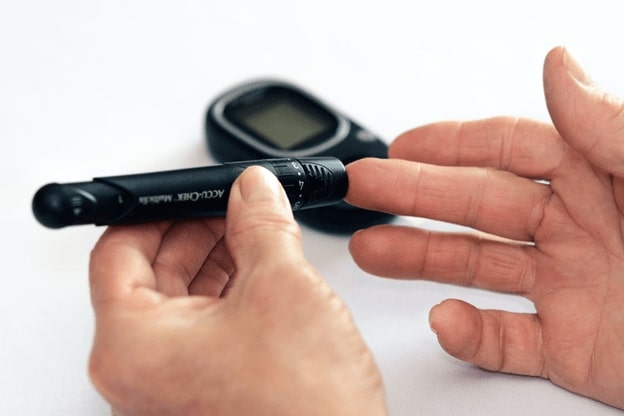
Metformin used for Type 2 diabetes. Diabetes is one of the most common lifelong diseases in the world. More than 34 million people in the United States are suffering from diabetes, and approximately 95% of them have type 2 diabetes.
Type 2 diabetes stops the body from producing enough insulin – the hormone responsible for feeding glucose to the body cells to generate energy.
Using insulin has, resulting in high blood sugar. The condition restricts the ability of cells to consume the glucose they need, therefore rendering the patient’s body insulin resistant.
Out of all the medicines that are used to treat type 2 diabetes, Metformin is one of the most effective options. This article will discuss everything there is to know about Glucophage, including how to take metformin it to treat the condition.
What is Metformin? Types, Warning, Dosage And Side Effects

Metformin is widely used to treat type 2 diabetes, weight loss for belly and helps prevent diabetes development. Although not officially approved for it, the medicine is originally used to treat polycystic ovary syndrome.
A hormonal disorder that affects the normal operation of ovaries and causes excess androgen levels in women. Glucophage normalizes blood sugar levels and stimulates ovulation.
Owing to Glucophage’s blood sugar-regulating capabilities, most doctors prescribe it to type 2 diabetic patients when dietary changes and exercise have failed to improve their health significantly. This is available both as a tablet and syrup.
How Does Metformin Work?

Metformin reduces the amount of blood sugar that your liver distributes in your blood. In addition, it also ensures that the body handles insulin better and responds to it properly. Consequently, the blood sugar levels in the body are rescaled, and insulin production is normalized.
Metformin does a good job of negating the effects of type 2 diabetes and preventing it from developing in people at risk. According to real-world data collected and analyzed by StuffThatWorks.health, Metformin is one of the top 10 most effective treatments for combating type 2 diabetes.
Who Should Take Metformin?
Metformin is most commonly prescribed to middle-aged adults and children who are ten years or older. However, there are some cases where taking Glucophage must be avoided.
You should not take this drug if you:
- Are allergic to it or other diabetes medicines
- Suffer from kidney and liver problems
- Have an acute infection
- Have had a heart attack recently
- Consume alcohol frequently
- Have breathing or blood circulation problems
Furthermore, taking glucophage is not advised if you are going to have surgery or an X-ray. Also, you must inform your doctor about your consumption of Metformin before taking anesthesia for medical purposes.
Dosage and Timing
It is advised that you take glucophage in tablet form with a meal to reduce the intensity of the side effects. Swallow it with a glass of water and do not chew it.
Metformin pills come in various potencies and strengths. The maximum safe dose per day is 2000 milligrams. Therefore, you must not take more than four 500 mg tablets in a day. Please consult with your doctor for advice regarding the Glucophage dosage you should be consuming.
Types Of Metformin

There are two types of Glucophage tablets – one is slow-release, and the other is standard-release.
Standard-release Glucophage disperses into your bloodstream faster, and therefore quickly affects your body. Because of their fast operation, you may have to take more standard-release tablets than you do slow-release ones.
Slow-release Metformin tablets are made so that they dissolve in your blood slowly. One dose of this slow-release medicine per day is usually sufficient for most people. You should take this single dose with your evening meal.
It is highly recommended to ask your pharmacist or doctor which type of Glucophage tablet you should take. This is also available in liquid form for children or people who have a hard time swallowing tablets.
Dose Management
Your doctor will inform you of the dose you should take and whether it needs to be adjusted with time. He will inspect your blood sugar levels periodically and see if improvements need to be made.
Usually, doctors start their patients with glucophage slowly. So, for example, in the first week, you will take one 500 mg tablet with breakfast.
Next week, you will take two tablets with your morning and afternoon meals. Another week after that, your dose will go up another onefold – meaning that you’ll be taking a glucophage tablet every morning, evening, and night.
If you cannot tolerate the side effects. you can ask your doctor for slow-release tablets instead.
Side Effects

There are some side effects of glucophage, which are given below.
- Nausea and feeling sick
- Diarrhea and vomiting
- Food aversion
- Stomach aches
- Metallic, iron-like taste
Those were the most commonly reported side effects. Given below are some serious side effects that may occur after taking Metformin, and in such cases, you should contact your doctor for medical advice.
- Yellow eyes and skin
- Slow heartbeat
- Prolonged general discomfort
- Severe exhaustion
- Red skin rashes
- Body pain and Muscle weakness
Even though these side effects are as rare as 1 in 10,000, it is still important to acknowledge them and keep them in mind.
Coping With Side Effects
Here are some coping methods that you can use to minimize the discomfort of the aforementioned side effects.
- Take your doses with food. This will help to reduce the ‘sick’ feeling you may have after taking the medicine. Furthermore, it will help you increase your dosage over the coming weeks.
- Avoid dehydration as much as possible. Drink lots of fluids to minimize possible diarrhea and vomiting after taking . Do not take anti-diarrhea medicine without informing your pharmacist or doctor, as it can be dangerous.
- Try chewing gum, preferably sugar-free, if you feel that Metformin leaves a strange taste in your mouth.
- Rest and relax if you have stomach aches. You can also try a soft and easy diet.
Before You Go
In this article, we have briefly discussed what there is to know about Metformin, including how to use it to combat type 2 diabetes. Even though is widely used as an effective remedy for the condition, it is recommended that you consult your doctor before taking this medication, especially regarding its dosage.
Also Read
- lifetime-fitness-membership-prices-locations
- Lifetime Onyx Membership: What Is It- Advantage & Price
- What is Ursolic acid? Benefits, Side effects and Supplements
- 5 Best Ingredients to Increase Testosterone Levels Naturally
- 6 Benefits of Biotin – How It May Protect Your Health
- Keto Diet Advantages And Disadvantages
- Planning Meals: 4 Factors To Consider – Complete Guide
- How-much-is-a-day-pass-at-lifetime-fitness
